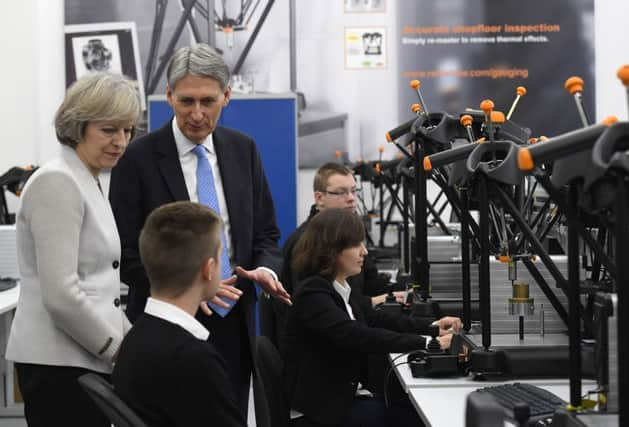Workers facing '˜dreadful' decade of wage stagnation


The Institute for Fiscal Studies said that the UK was in line for “an additional dollop of austerity” in the 2020s after Chancellor Philip Hammond admitted in Wednesday’s Autumn Statement that he has given up hope of eliminating the deficit by the end of this Parliament.
IFS director Paul Johnson said projections from the independent Office for Budget Responsibility suggested that real wages will remain below pre-recession 2008 levels until 2021 - the longest period since the Second World War.
Advertisement
Hide AdAdvertisement
Hide AdAnd he said: “One cannot stress enough how dreadful that is - more than a decade without real earnings growth. We have certainly not seen a period remotely like it in the last 70 years.”
Mr Johnson said the forecasts produced by the OBR on Wednesday - when it predicted a £122 billion increase in borrowing over five years, almost £60bn of it due to the impact of Brexit - were “noticeably more upbeat” than those of some other experts, including the Bank of England.
But he added: “Even so, the outlook for living standards and for the public finances has deteriorated pretty sharply over the last nine months.”
He said the failure to meet former chancellor George Osborne’s target of paying down the deficit and reaching surplus by 2019/20 meant austerity would continue into the next decade.
Advertisement
Hide AdAdvertisement
Hide AdMr Hammond’s promise to balance the books “as soon as possible” in the next parliament - expected to run from 2020-25 - was “rather woolly”, said the IFS boss.
But he added: “Given uncertain times, a degree of woolliness is probably sensible.
“It wouldn’t take a huge downgrade in trend growth forecasts of GDP in 2020 for us to miss the target.”
However, pro-Brexit Tories said the OBR was being too pessimistic.
Former Cabinet minister Iain Duncan Smith said the forecasts were “another utter doom and gloom scenario” by an organisation “that simply hasn’t got anything right”.